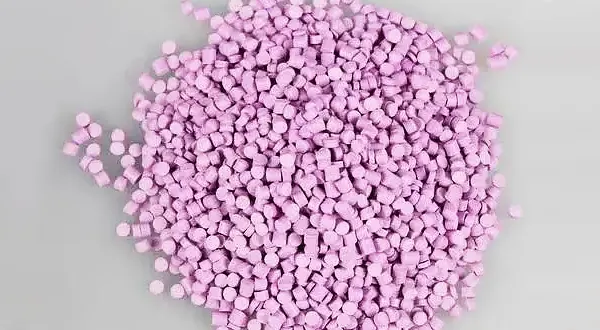Kansas
Plastic injection molding for Kansas
Receive top-tier engineering services from a seasoned manufacturer with a track record of professionalism and excellence.
Custom Parts, On Demand Manufacturing
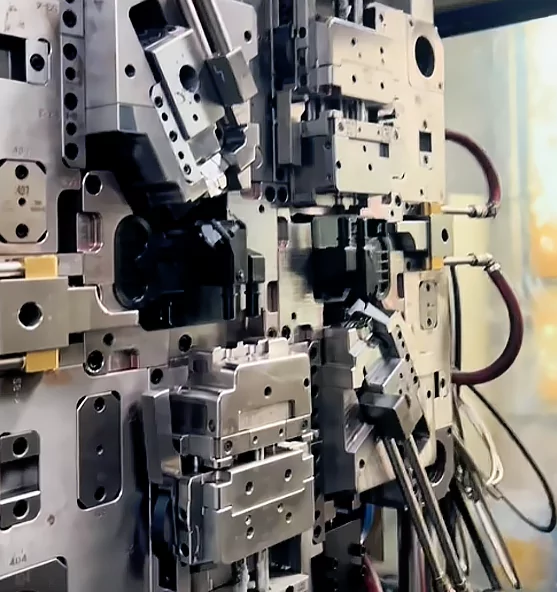
Explore our premier Plastic injection molding services in Kansas
specializing in plastic prototypes and production parts.
Welcome to CapableMachining, your premier service provider for plastic injection molding services. With years of experience and expertise in the industry, we specialize in delivering high-quality products through precise and efficient injection molding techniques. Our state-of-the-art machinery and skilled team of professionals ensure that we can meet the unique needs of our clients, while maintaining competitive pricing and quick turnaround times. Whether you require prototyping, short-run production, or high-volume manufacturing, CapableMachining is committed to delivering exceptional results that exceed your expectations. Contact us today to learn more about our plastic injection molding services and how we can help bring your project to life.
Why Choose Us?
Our ability to provide on-demand manufacturing services means not only having strong manufacturing capabilities but also services that can produce complex end-use parts quickly, efficiently, and intelligently.
Our services
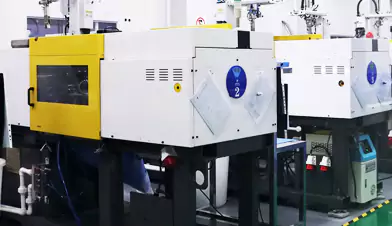
Injection molding stands as the predominant approach for mass-producing plastic goods. This method involves melting plastic, injecting it into molds, ejecting the finalized product, and then repeating the cycle.
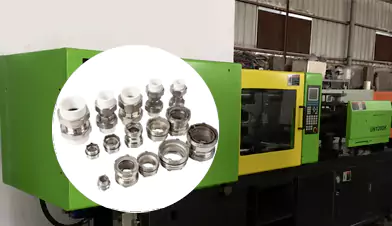
Insert molding proves to be a highly practical injection molding technique that enhances the strength or other properties of the final part by integrating additional materials.
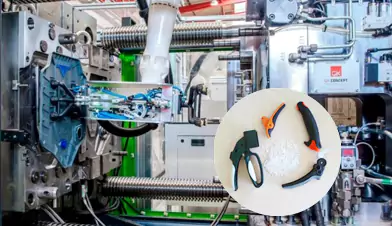
Overmolding is a process where various materials are layered to create a composite article. Typically, this method entails injecting a base material over one or more pre-existing parts to integrate them into a unified whole.
Other services
Capabilities
Tolerances
Heavily depending on the plastic type and the size of the part, typically +/- 0.15mm or +/-0.006 inch
Mold Life Cycle
Typically 300,000, and 600,000 if required.
Leading Time
Typically: tooling 30 days, injection molding 3 days
Injection Material
Most of the thermal plastic, ABS, HDPE, PE, PC, PMMA, PA6, PA66, POM, PBT, PET, PVC TPU, TPE, Silicone Rubber… Learn More >
Materials
Preferring the right material is serious, not only for factors such as cost, processing complexity, and potential surface treatments but also for the ultimate quality of the product. Our masterful engineering team specializes in proactively addressing this challenge, even before an order is placed. This process checks that our customers have the resolute faith in the final quality of their products.
Rigid Materials
Rigid plastic materials are defined as materials that show primarily no elastic deformation and no complete plastic deformation. Wemaintain long-term cooperation with quality suppliers, which enables us to provide quality assurance to our customers as well as to accommodate multiple special requisitesof our customers.
Elastic Materials
Top-quality materials are the backbone of quality and an important component of the finished product price. We join forces with major material suppliers and can provide you with instant quotes on assorted variety of top-quality plastics, as well as a variety of material selection options.
Our Quality Control
Our company boasts a long-standing quality assurance framework and a team of qualified technical engineers who diligently oversee every aspect of our product manufacturing process – from sourcing top-notch natural components to delivering impeccable finished goods that encompass metals and plastics. To sustain our devotion to greatness, we extensively utilize state-of-the-art testing technology and cutting-edge equipment to meticulously evaluate crucial parameters such as workpiece dimensions, hardness, tensile strength, and elongation at every stage of production. We yearn to maintain utmost control over these data points to meet and surpass the expectations of our esteemed clientele consistently.

Professional quality control Engineer

Tolerances up to ±0.0004″ (0.01mm)

State-of-the-art Inspection Facilities

Proven and reliable quality control system.
Gallery of Parts

Charging Plug
Material: ABS

Industry equipment part
Material: PEEK

Telecom equipment part
Material: PA66

Auto bumper
Material: ABS

UAV blades
Material: PPA + 30 Carbon Fiber

Medical container
Material: PE
Other capabilities

- Free & Automatic DFM feedback
- Tolerances: typically +/- 0.15mm or +/-0.006 inch
- Tooling: 30 days

- Free advices from high trained engineers.
- Quotation in a few hours.leading time 3 days
- Fast delivery time

- Tolerances: typically +/- 0.15mm or +/-0.006 inch
- Free consultant ,Free DFM feedback
- Casting lead time: 5~7 days

- Wide range of material choices
- Free consultant from engineers
- Fastest leading time: 1 day

- Free & Automatic DFM feedback
- Tolerances up to ±0.00078″ (0.02mm)
- Rapid tooling: 7~12 days
How do find our location?
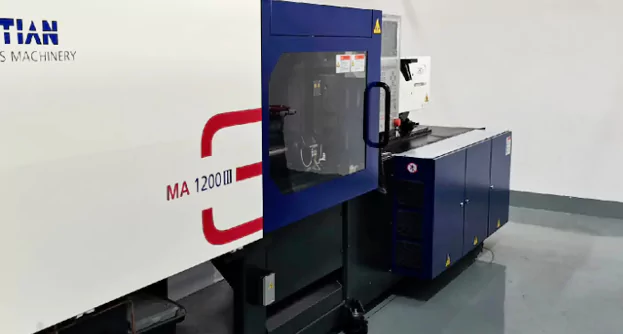
Plastic injection molding for Kansas
Other Location Near me
FAQ
Introduction
Plastic injection molding is a highly versatile manufacturing process that is widely used in various industries, including automotive, aerospace, and consumer goods. Kansas, with its thriving industrial sector, has become a hub for plastic injection molding. In this article, we will explore 10 pairs of questions and answers related to plastic injection molding in Kansas.
Q: What is plastic injection molding? A: Plastic injection molding is a manufacturing process in which molten plastic is injected into a mold cavity under high pressure.
Plastic injection molding involves the use of thermoplastics or thermosetting polymers, which are heated to a molten state and then injected into a mold cavity. The molten plastic cools and solidifies inside the mold, resulting in the desired shape of the product.
Q: What are the advantages of plastic injection molding? A: Plastic injection molding offers fast production cycles, high precision, and the ability to produce complex shapes and designs.
Plastic injection molding is a cost-effective manufacturing process that allows for mass production of plastic parts with consistent quality. It also offers design flexibility, as molds can be easily modified to accommodate changes in product specifications.
Q: What industries use plastic injection molding? A: Plastic injection molding is used in a wide range of industries, including automotive, medical, electronics, and consumer goods.
The automotive industry relies on plastic injection molding for producing interior and exterior components, while the medical industry uses it to manufacture disposable medical devices and equipment. The electronics industry also benefits from plastic injection molding for producing housing and connectors for electronic devices.
Q: What materials can be used in plastic injection molding? A: Plastic injection molding can be used with a variety of materials, including thermoplastics, thermosetting polymers, and elastomers.
Some common thermoplastics used in plastic injection molding include polyethylene, polypropylene, and polystyrene. Thermosetting polymers, such as epoxy and phenolic resins, are also used for specialized applications. Elastomers, such as silicone rubber and polyurethane, are used for producing flexible parts.
Q: How does the plastic injection molding process work? A: The plastic injection molding process begins with the design of the mold, which is then filled with molten plastic through a injection unit.
The injection unit heats the plastic material to a molten state and injects it into the mold cavity under high pressure. The mold is cooled, and the plastic part is ejected from the mold. The process is repeated for each part until the desired quantity is produced.
Q: What factors should be considered when designing a plastic injection molding part? A: Design for manufacturability, material selection, and tooling are important factors to consider when designing a plastic injection molding part.
Design for manufacturability involves creating a part that can be easily produced using the plastic injection molding process. Material selection is crucial for determining the properties and performance of the part, while tooling design affects the quality and cost of production.
Q: What are the limitations of plastic injection molding? A: Plastic injection molding has limitations in terms of part size, complexity, and material selection.
While plastic injection molding is suitable for producing small to medium-sized parts with high precision, it may not be cost-effective for very large parts. The process also has limitations in terms of the complexity of part designs and the materials that can be used.
Q: How is quality assurance maintained in plastic injection molding? A: Quality assurance in plastic injection molding involves rigorous testing and inspection of parts throughout the production process.
Quality assurance ensures that the parts meet the required specifications and standards for functionality and performance. Inspection methods such as dimensional analysis, visual inspection, and material testing are used to identify any defects or deviations from the desired quality.
Q: What are the environmental considerations of plastic injection molding? A: Plastic injection molding can produce waste materials and emissions that have environmental impacts.
Efforts are being made to reduce the environmental footprint of plastic injection molding by improving waste management practices and implementing recycling programs. Manufacturers are also exploring the use of biodegradable and sustainable materials in the production process to minimize environmental impact.
Conclusion
In conclusion, plastic injection molding is a vital manufacturing process that has revolutionized the production of plastic parts in various industries. Kansas, with its growing industrial sector, has embraced plastic injection molding as a key technology for manufacturing high-quality plastic products. By understanding the basics of plastic injection molding and considering the factors that affect the production process, manufacturers in Kansas can continue to drive innovation and efficiency in the field of plastic manufacturing.


